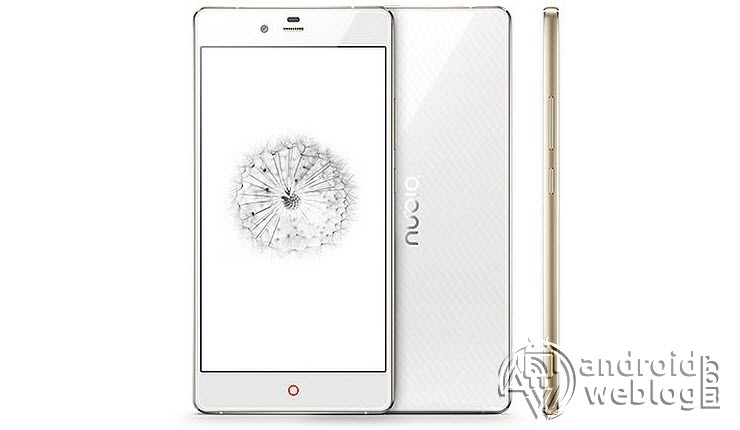How to Root Xiaomi Redmi Note 7 (lavender) and Install TWRP Recovery 3.6.2

If you own a Xiaomi Redmi Note 7 (lavender), and also want to root the device, then you are on the right page.
If you are an Android Enthusiast, and want to Root and Install TWRP recovery on your beloved, then you have landed on the right page. In the due course of the article, we will guiding you through the process to root Xiaomi Redmi Note 7.
The TWRP features the material design, and attractive user interface (UI), and by following this guide you can install latest TWRP for Xiaomi Redmi Note 5/ Redmi 5 Plus. You can download TWRP Recovery from the links provided in the pre-requisite section of this article. Kindly note that this is a official TWRP recovery and is only for Xiaomi Redmi Note 7 (lavender) (Kindly confirm the model by going to Settings>About). The process given below is merely for rooting and installing TWRP on Xiaomi Redmi Note 7, do not try out this method on any other device.
If you want to unleash the full potential of the hardware of your Xiaomi Redmi Note 7 (lavender) , then rooting and flashing custom recovery like TWRP is the main concern. The Stock ROMs have often limited and unsupported features in the sense of Customization. When you have a rooted device and also flashed TWRP recovery, then you are free to install any Custom ROMs, Mods, Kernel, and Xposed etc., as well as many apps which requires root access to work properly. You can easily root the device with One Click Android Root Tool, with either via PC or through the APK, which is a quick process.
Table of Contents
Brief Details and Advantage of TWRP Recovery
TWRP (Team Win Recovery Project) is an open source, community development project. By flashing the TWRP, your device will be enabled to install any custom firmware, rooting your smartphone, mod zip files for customizations, Xposed Modules for customized features, one click root and unroot processes. Apart from that, it allows you to take Full Nandroid Backup and restore it later, one click image file flashing, remove bloatware, overclock and underclock. Using TWRP, one can easily clean Wipe, Cache and Data after flashing any image file to reflect the changes and rectify minor errors due to cache.
For installing the TWRP, your Xiaomi Redmi Note 7 phone must have the Unlocked bootloader. That means you have to firstly unlock the bootloader to root your device as well doing any customization.
Rooting and flashing the Custom ROM firmware, certainly without any doubt voids your devices warranty and AndroidWeblog.com in no way will be held responsible for warranty void or your bricked device.
Prerequisite
Ensure to check your model number, which must be:
- Xiaomi Redmi Note 7 (Codename: lavender)
You must have to ensure that prior to rooting your phone , you have read thoroughly the disclaimer and you agree to proceed further on your risk.
- Phone Should be Charged
Your phone must be 70% charged at least, else, it may lead to complications sometimes while experimenting. Why to take risk, try to charge it fully.
- Back Up
If you are either going to root your phone or install a Custom ROM, it is a good habit to make a back up of your phone. Make a back up of all your media like images, videos and all on your PC and your contacts on Cloud.
- Enable USB Debugging
(Applicable only for PC method, Skip if you will use APK method)
You must enable USB debugging option by going in to Settings, Applications and Developer options.
Downloads For Rooting Xiaomi Redmi Note 7 (lavender)
Download Universal ADB Drivers here (If your PC have already drivers installed then skip this)
Download platform-tools/ SDK Tools package from Android SDK on PC from here. (Android command line tools> SDK Tools package)
Download TWRP Recovery for Xiaomi Redmi Note 7 from here:
TWRP Recovery 3.2.3 (Mediafire Link)
TWRP Recovery 3.3.0 (AndroidFileHost Link)
TWRP Recovery 3.3.1-7 (AndroidFileHost Link)
Download SuperSU by Chainfire from here.
Make sure that you have downloaded the required files (link in pre-requisite section of this article). Then, proceed to the steps.
Steps to Unlock Bootloader of Xiaomi Redmi Note 7 (lavender)
Note: If you have already unlocked bootloader, then skip these steps.
Step 1: Visit the MIUI website’s MiUnlock page, after visiting, just Sign in with your Mi ID. Make sure to register account with proper details, if it is already registered, which is a general case since you are a Mi user, then it’s good and well. Now, at the website you must request for the unlocking permissions/Bootloader unlock, mentioning the proper reason to unlock the device. The reason should be justifiable, and following which your device’s bootloader would be unlocked.
Step 2: After receiving the permission from Xiaomi to unlock the bootloader of your device, download the MiUnlock app. After downloading the MiUnlock app, just unlock bootloader of your device.
Now, you can Root Xiaomi Xiaomi Redmi 5A as bootloader of your device is already unlocked.
Steps to Flash/ Install TWRP on Xiaomi Redmi Note 7 (lavender)
Step 1: Assuming you have already downloaded the platform-tools from Android SDK (SDK Manager) platform-tools on your PC. The platform-tools contains the required adb and fastboot binaries.
Step 2: Make sure that the drivers are installed on your computer. Then, skip to the next step.
Note: If Developer Settings and USB Debugging settings are already enabled on your device, as suggested in Prerequisite section, then simply skip the Step 3 and Step 4, and follow Step 5 directly.
Step 3: Now, enable the developer settings on your Xiaomi Redmi Note 7 Device. To achieve the same, just navigate to the Settings -> About and then find the ‘Build Number ‘, and then tap on ‘Build Number’ for 7 times, this will enable the developer settings on your device.
Step 4: If you have USB Debugging already, then skip this step. If you have not, then open the Developer Options and then enable USB debugging option.
Step 5: Now, open the command prompt in computer/ ADB Terminal, and simply type the command:
adb reboot bootloader
Step 6: Your device should have not entered into fastboot mode. Now copy the TWRP.img file downloaded in prerequisite section, to the same folder where adb and fastboot binaries are located. Rename the file to ‘twrp.img’ and then enter this command:
fastboot flash recovery twrp.img
and then run this command, type:
fastboot reboot
Step 7 (Important): Some devices might not replace the custom recovery automatically during the first boot. You can search Google for key combinations to enter your device into recovery mode. After running the ‘fastboot reboot’ command, press and hold the proper key combination to enter device into TWRP Mode. Once the device boots to TWRP mode, the TWRP will automatically patch the stock ROM, to prevent the chances of replacing TWRP with Stock Recovery.
After typing fastboot reboot, hold the key combo and boot to TWRP. Once TWRP is booted, TWRP will patch the stock ROM to prevent the stock ROM from replacing TWRP. If you don’t follow this step, you will have to repeat the install.
Procedure to Root Xiaomi Redmi Note 7 (lavender)/ Install SuperSU
Make sure that you have downloaded SuperSU (link in pre-requisite section of this article). Then, proceed to the steps.
Step 1: Transfer the downloaded SuperSU.zip file to the internal storage / SD card of your Xiaomi Redmi Note 7 smartphone.
Step 2: Now, just boot into the recovery. From the TWRP interface, you can optionally backup the Stock ROM. Though, I would recommend to backup the Stock ROM. Because if in case process gets failed, you can flash the Stock ROM.
Step 3: Tap on Install ‘, and then navigate to the file ‘SuperSU.zip’ and swipe to confirm flash (located at the bottom of the screen). The flashing process of SuperSU has been started and will take few seconds to complete.
Congratulations, now you have rooted Xiaomi Redmi Note 7 and also flashed the TWRP. Now, you can install Xposed Framework, and customize your smartphone as per your preference. If you wish to verify, you may download and check the Root Status through Root Checker app.










